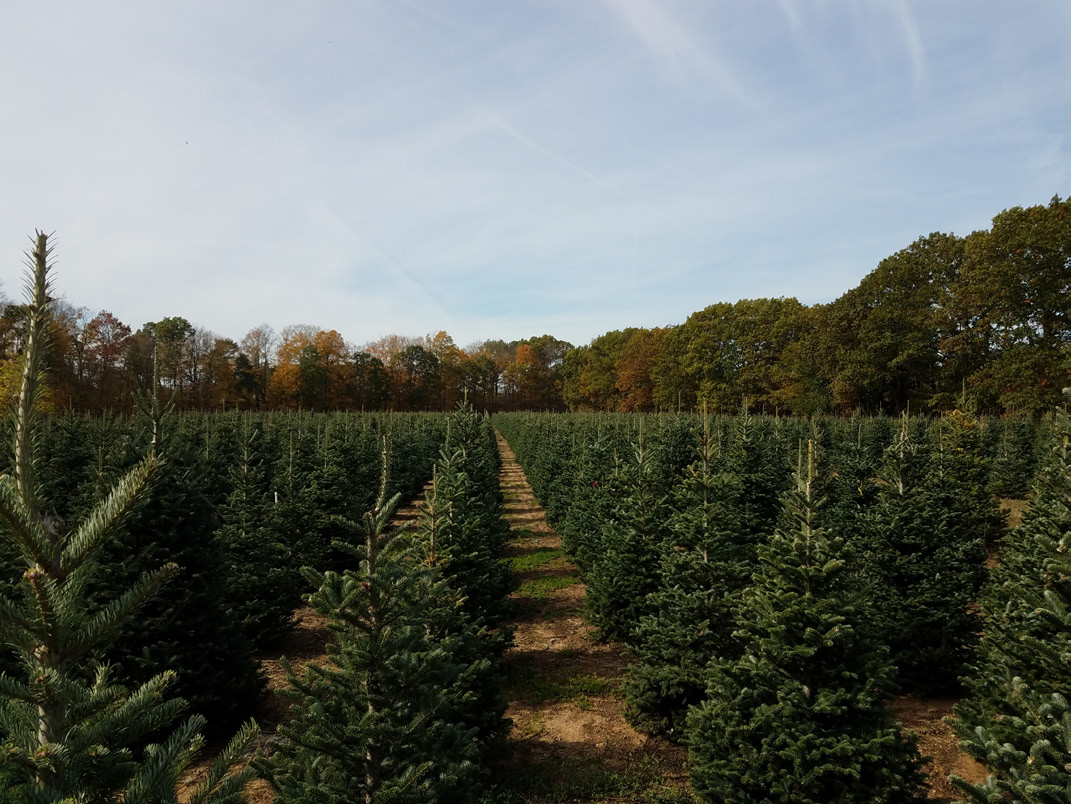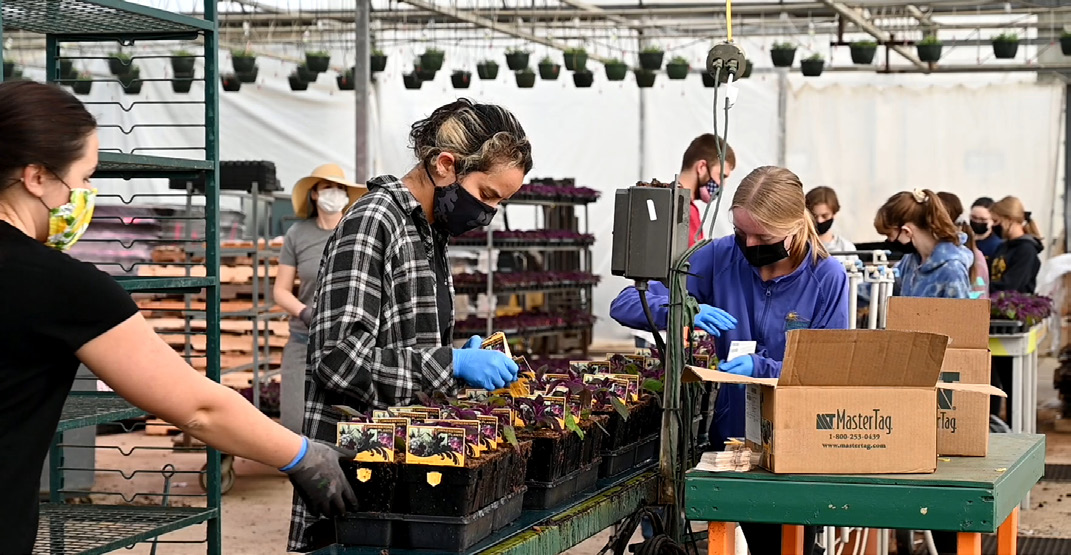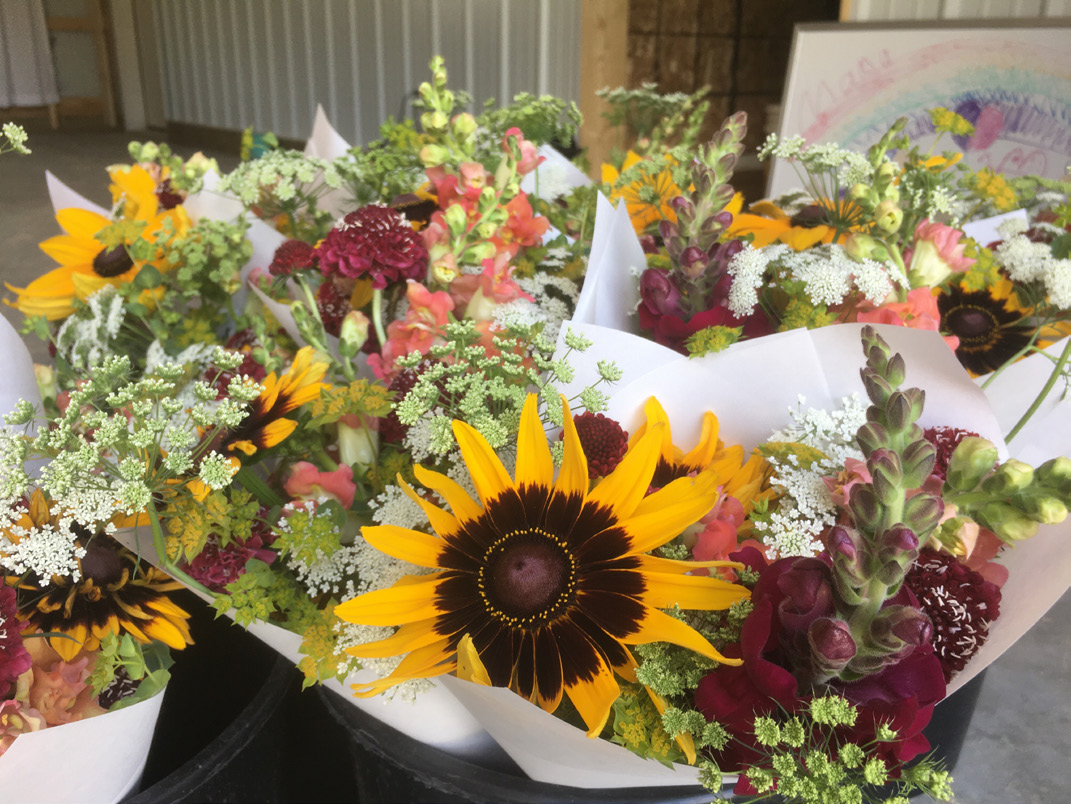
Strengthening Michigan's ornamental horticulture industry
DOWNLOADSeptember 5, 2023 - Michigan State University Extension
Impacts
The Michigan State University (MSU) Extension ornamental horticulture team aims to provide greenhouse, nursery and Christmas tree growers with information to reduce the risks and increase production efficiency. Of those who attended a select 12 MSU Extension events, respondents reported that:
- 90% of green industry operations intend to make changes because of programming.
- 83% of people indicated moderate to significant knowledge gain on topics because of programming.
- 47,613 acres are impacted by intended changes.
- 4,750 participants attended programs developed by the ornamental horticulture team.
- 463 stakeholder consultations took place.
- 239,185 people benefited from 46 articles, 9 interviews and 6 videos.
Priority Areas
Climate, soils and a centralized location to markets make Michigan a national leader in producing greenhouse-grown plant material, landscape nursery stock and Christmas trees. Michigan is the third largest producer of floriculture crops and the largest young plant producer in the United States with a total crop value of $711 million (U.S. Department of Agriculture [USDA], National Agricultural Statistics Service [NASS], 2022). The state also ranks third in the U.S. for Christmas tree production (USDA NASS, 2022) and 16th in national nursery stock sales (USDA NASS, 2019), bringing the total combined value of all ornamental crops to $850 million.
With increasingly thin margins, growers continue to seek methods to decrease input costs, increase energy efficiency, decrease plant losses, diversify their cropping systems and look for new markets. During 2022, programming focused on three main priority areas:
- Improvement of crop production techniques to increase plant quality
- Integrated pest management
- Business viability and industry promotion
IMPROVING CHRISTMAS TREE QUALITY THROUGH WEED CONTROL

Production of Christmas trees and conifer nursery stock is a major agricultural industry in the U.S., generating over $1 billion in sales in 2017 (USDA NASS, 2017). To grow high-quality Christmas trees, producers must carefully manage weeds to prevent die-out of the lower limbs, reduce competition for water and maintain fields for choose-and-cut operations.
The MSU Extension Christmas tree team offered a four-part webinar series during February 2022 covering pre-and post-emergent herbicides and nonchemical weed management options. The program had 476 participants from 33 U.S. states and four provinces of Canada, representing 138,438 acres of Christmas tree production throughout North America. In a post-series survey of participants:
- 92% planned on making a change to their weed management strategy, impacting 28,932 acres of production.
- 98% found the chemical weed management webinar to be very beneficial.
- 78% said the webinar would make them more confident in their weed management strategy.
As a result of attending this series, participants also reported significant savings from:
- Reduced fuel and herbicide costs.
- Implementation of pre-emergent herbicide programs.
- Planning for cover crops.
- Training the next generation.
RESPONDING TO THE NEEDS OF AGRICULTURAL EMPLOYERS
The MSU Extension ornamental horticulture team works closely with growers to identify and develop programming that addresses the educational needs of Michigan’s floriculture industry. Most floriculture producers indicate they are chronically understaffed and regularly experience a pressing lack of reliable labor. The food and agriculture industry is no stranger to this problem, but the highly competitive labor market makes it much more difficult for our industry to find the help it desperately needs.
In recognition of this critical issue, the floriculture and farm management teams co-developed a half-day attraction and retention workshop for food and agricultural employers. This introductory workshop is designed for small and medium-sized businesses interested in improving their employer value proposition (EVP) by making their operation a more enticing place to work.
The program features a combination of university researchers, industry specialists and agricultural producers covering the fundamental concepts of attracting and retaining employees, including EVP, company culture and branding, wages and benefits, and the valuation of current employees.

A total of 118 agricultural and allied industry professionals attended these workshops in 2022. Across all workshops:
- 96% of respondents felt that the workshop would help them improve employee recruitment and retention at their company.
- 100% of respondents indicated an intent to implement a change to improve their companies.
- 82% of respondents considered the workshop to be “beneficial” or “greatly beneficial.”
"I feel I have a great idea of changes that our farm should/will implement." -Labor Attraction and Retention workshop attendee
"I’m in education. I really enjoyed today’s presentations, especially Dr. Hall’s talk. In our new program, we plan to teach students how to be good leaders. I will use what I learned today to teach students how to show their employees that they’re valuable." -Labor Attraction and Retention workshop attendee
MSU EXTENSION SUPPORTS EMERGING AGRICULTURAL INDUSTRIES
Small businesses are a critical segment of Michigan’s economy. They contribute to the social and economic vitality of the region by creating jobs and broadening career opportunities within their local communities. MSU Extension recognizes that small farms are small businesses and that helping them succeed improves the resilience of both local and state economies.

Specialty cut flower production is a small but thriving niche industry in Michigan. As of 2017, Michigan ranked seventh in the nation for cut flower production with total sales coming in at just under $10 million (USDA NASS, 2017). Although the state has a rich history of bedding plant and nursery production, a vibrant cut flower sector provides direct benefits to the broader floriculture industry by elevating public awareness and providing additional options for consumers.
Public interest in specialty cut flower production has increased dramatically over the last five years. Many new cut flower farmers do not have an agricultural background and have little to no horticultural training. To address a clear need for beginning-level agricultural education, the MSU Extension floriculture team has developed educational programming specifically for specialty cut flower growers over the past four years.
One example of this initiative is the Bloom Zoom, a three-part series of live weekly webcasts on specialty cut flower production. The series placed special emphasis on fundamental production topics such as soil health, propagation from seed and plant pathology. The series was a spectacular success with 210 live participants and 352 registrants from seven countries, 43 U.S. states and 47 Michigan counties. Overall, 87% of post-survey respondents indicated that they intend to implement changes at their operation based on information presented during the seminars.
Small farms are the heart and soul of Michigan agriculture, and the MSU Extension floriculture team is proud to play a part in helping them thrive.
REFERENCES
U.S. Department of Agriculture, National Agricultural Statistics Service. (2017). Census of agriculture. https:// www.nass.usda.gov/Publications/AgCensus/2017/
U.S. Department of Agriculture, National Agricultural Statistics Service. (2019). Census of horticultural specialties. https://www.nass.usda.gov/Surveys/Guide_to_NASS_Surveys/Census_of_Horticultural_Specialties/index.php
U.S. Department of Agriculture, National Agricultural Statistics Service. (2022). Survey 2022. https://quickstats.nass.usda.gov/



 Print
Print Email
Email